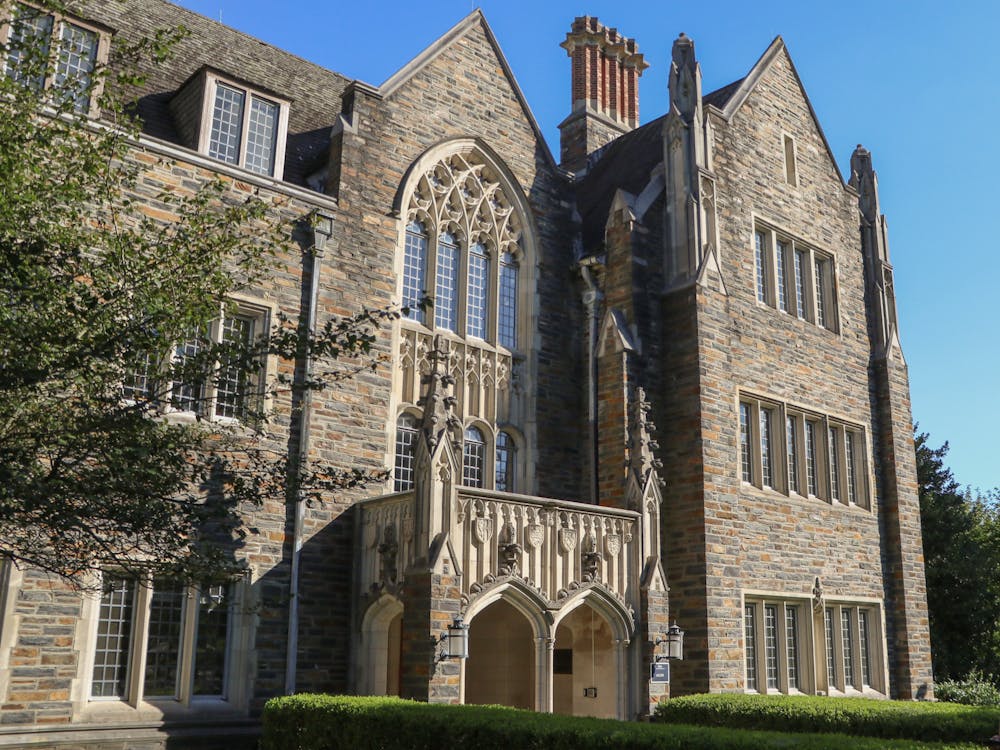In September, Duke joined other universities in tightening rules on student protests, after a year of campus confrontations led to sit-ins, arrests and canceled graduations nationwide.
Although the University said that these updates to the Community Standard will not interfere with free speech on campus, students expressed mixed opinions about the policy. Some view the change as a positive step towards safer and more organized events, while others are concerned about its ambiguity and potential to deter students from attending events.
Pickets, Protests and Demonstrations policy
Under the updated Pickets, Protests and Demonstrations policy, all related events must be registered with the University. Additionally, the University can limit the duration, location and sound level of the protests.
Violations of the policy can lead to expulsion and legal charges.
“A determination to discourage conduct which is disruptive and disorderly does not threaten academic freedom; it is, rather, a necessary condition of its very existence,” according to the statement of policy.
The University also instituted a rule requiring students to carry their DukeCard and present it to any “University official” who requests to see it.
The policy also designates that any PPD event must be registered through Duke Groups. Students are able to receive support upon registering and can direct their questions to Student Involvement and Leadership.
“Duke’s policies have not changed so much as we have made an effort to collect our existing policies, guidelines and practices in one place,” wrote Mary Pat McMahon, vice provost and vice president of student affairs, in a Sept. 27 email to The Chronicle. She added that the current PPD policy “is virtually identical” to the policy from the 1980s.
Student groups respond to policy changes
Last year, the University saw a number of student group demonstrations, including groups like Duke Students Supporting Israel, Duke Students for Justice in Palestine and Duke Climate Coalition.
One year after the Oct. 7 attack on southern Israel by militant group Hamas, SSI has held a number of vigils and demonstrations on campus, including two memorials donning Israeli flags honoring the hostages and lives lost.
With the help of faculty advisor Joyce Gordon, director of Jewish Life at Duke, SSI Co-president Alex Ahdoot, a senior, said the club has been “proactive” about planning its events in compliance with the new PPD policy, and has met with Student Affairs to review the updated guidelines.
Ahdoot and SSI Co-president Shira Shasha, a sophomore, expressed overall positive feelings towards the updated PPD policy
“We're not just saying we're in favor of them because it's gonna crack down on the anti-Israel protest,” Ahdoot said. “We're in favor of them because it's gonna make everyone's protests and everyone's demonstrations more efficient and more in line with our school's values.”
However, Shasha felt the updated PPD policy was “definitely not as publicized as it should have been.” In addition to the Aug. 28 email, Student Affairs sent out a message Sept. 12 with more information about the Events and Activities Policies page.
DCC Co-presidents Fisher Mallon and Catherine Papa, both sophomores, said they were not aware of the updated PPD policy. They both expressed uncertainty about the rules, calling for “more concrete and easily discernible boundaries for what's acceptable.”
Mallon also stated that the “danger of having even perceived uncertainty with the boundaries of [the] rules” would lead to discouragement of protests, as students would be “scared to organize something that they’re worried would get themselves or their members in trouble.”
He added that DCC intends on remaining an activist club, which they understand will require them to navigate holding protests that adhere to Duke’s standards.
“Part of the value of a protest is something that's fluid and natural and springs up to put pressure on administration — or against some sort of new announcement as it happens — when there's momentum,” Mallon said. “And so having a constraint that you need to make a reservation for protests three weeks out limits a lot of that momentum.”
SJP declined The Chronicle’s request for comment.
Get The Chronicle straight to your inbox
Sign up for our weekly newsletter. Cancel at any time.

Ava Littman is a Trinity sophomore and an associate news editor for the news department.

